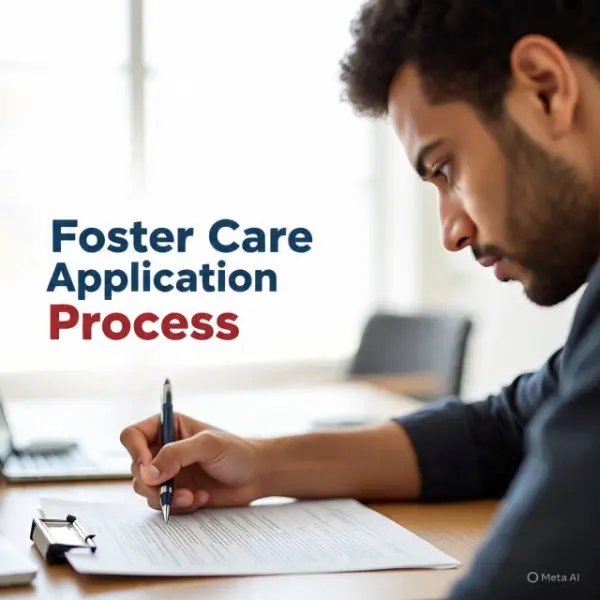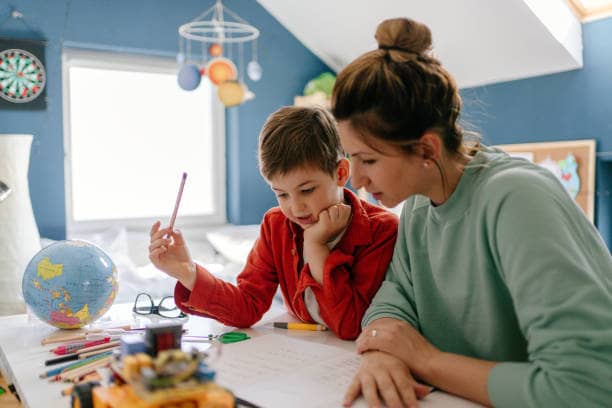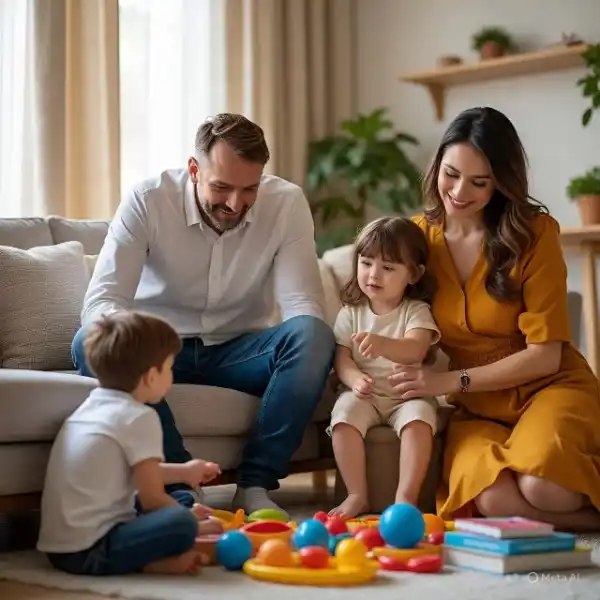Post-Adoption Depression: Symptoms And 7 Ways To Tackle It
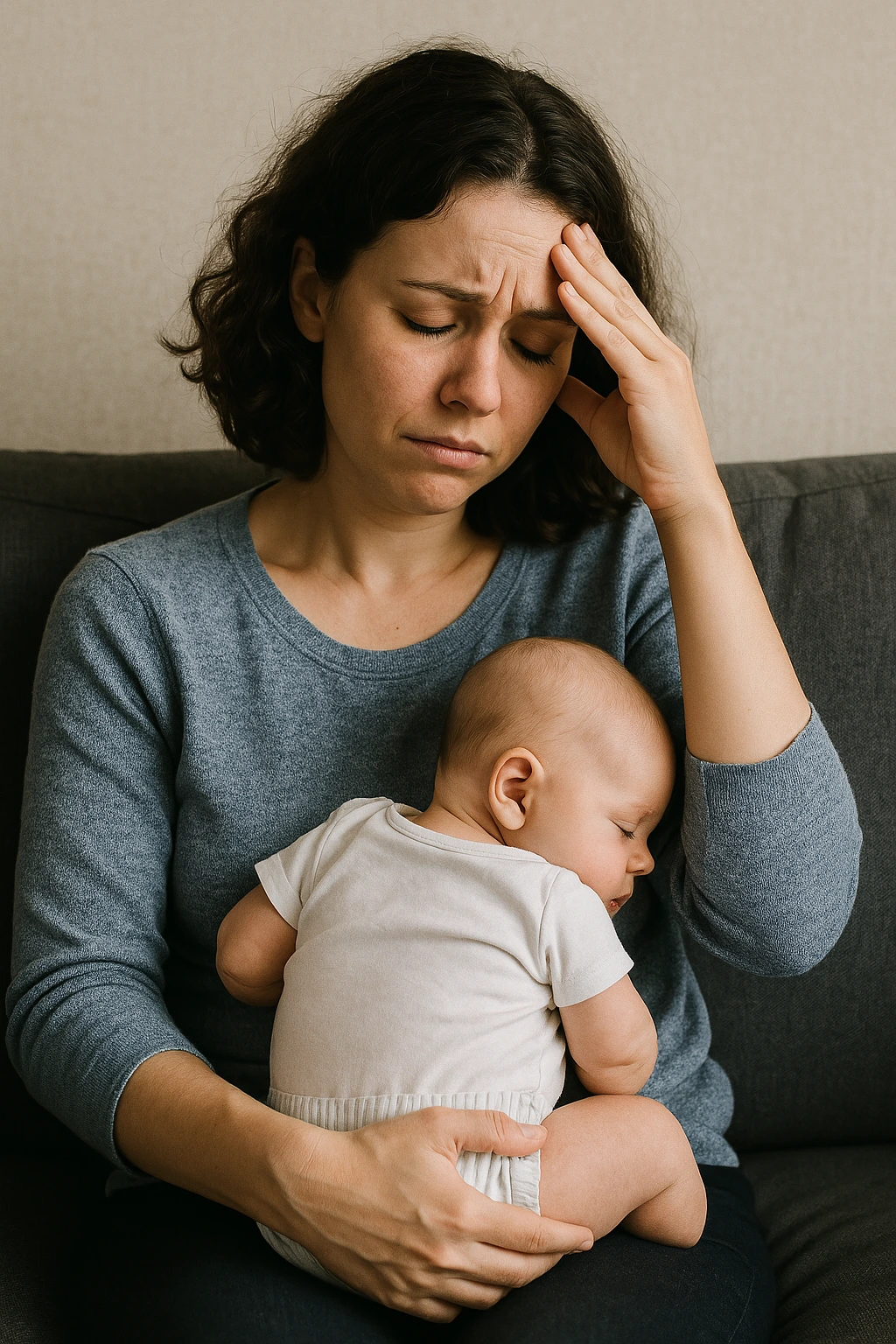
Did you suddenly see yourself feeling sad, and empty after welcoming a new child into your family? You are not alone. Post-adoption depression has affected many new adoptive parents, and still,l, it remains largely neglected and undiscussed in mainstream discussions about adoption.
In this comprehensive guide, we will explore the signs of Post-Adoption depression and how to cope with it, and I also show you some unique support resources to help you navigate this challenging but enjoyable condition.
Let’s do this.
What Is Post-Adoption Depression:
As the name implies, it is a form of clinical depression that happens to any parent after welcoming an adopted child into their family. This could be similar to the postpartum depression that also happens to the birth parents after giving their children out.
This condition is characterized by intense and persistent feelings of sadness, overwhelm, and disconnection that are beyond normal challenges.
Studies show that about 18-26% of adoptive parents experience this depression, and the number may even be higher than this due to a lack of awareness about conditions or underreporting.
Note that this is not the same as “baby blues” that is experienced briefly by many new parents because post-adoption depression pangs beyond a few weeks and affects the daily functioning and, sometimes, the child’s bonding process.
You may need extra effort, intervention or support to get healed from this.
Signs and Symptoms of Post-Adoption Depression:
Persistent sadness or emptiness:
Post-Adoption Depression may be noticed through persistent sadness or emptiness; you may also notice signs of overwhelming guilt and feelings of inadequacy. Birth parents may often feel anxious or have panic attacks with irritability and anger. Some parents may struggle with emotional numbness or detachment, and may also find it difficult to connect to their adoptee.
Over time, these challenges can result in troubling thoughts of questioning their adoption decision or even giving up. All the emotional symptoms often intertwine and create a more complex and distressing experience that many adoptive parents won’t like to discuss openly.
Overwhelming guilt or feelings of inadequacy:
Another sign of post-adoption depression is that the parent will be experiencing the depression frequently and battle guilt and not feel immediate joy or connection. You might also notice that you compare yourself constantly, and believe you are failing your child because your emotions don’t match your expectations. That will further deepen your feelings of inadequacy and shame.
Anxiety or panic attacks:
There will also be intense anxiety about your child’s well-being, which can trigger physiological responses, heart racing, and overwhelming dread. The post-adoption depression will sometimes escalate normal parental worries into intense fear about potential attachment issues, or develop concerns about the emotional state of your child.
Irritability And Anger:
Post-adoption depression can show as unexpected aggression, with minor frustration that will trigger disproportionate emotional responses. Sometimes, you may notice sudden anger that’s directed at the child or the professionals who helped in the adoption. Additionally, you may crush guilt about these feelings or create a destructive emotional cycle.
Sleep Disturbances:
If you are experiencing Post-Adoption depression, you may be experiencing a constant sleep disruption pattern despite physical exhaustion from your new parenting journey. You might also experience racing thoughts about your child’s past trauma experiences or your parenting abilities which will cost you your sleep.
Changes in appetite and weight:
Another common symptom you will notice is a change in your relationship with food. You will either lose interest in eating or turn to comfort foods. This loss of appetite can lead to noticeable weight loss that further affects your self-image and energy levels during vulnerable transaction times.
Withdrawal from friends and family:
Another top sign is withdrawal from social life. You might avoid gathering with friends so they don’t notice your lack of expected parental joy or feel unable to relate to other parents. This will gradually reduce your vital support network when you need it most.
Excessive worry about being a “good enough” parent:
You will also notice that you have become hypervigilant about your parenting, which will make you scrutinize every interaction for evidence of failure. This feelings will paradoxically interfere with your bonding pattern as spontaneous interactions will be replaced with anxious self-monitoring and fear that will know the child isn’t yours.
Personal History and Psychological Factors:
Past mental health issues like bipolar disorder, PTSD, or earlier postpartum can make one more likely to feel depressed after adoption. People who find it uneasy to form close relationships can also have a harder time bonding with their adopted children because this old relationship style can return during the important bonding time after adopting a child.
Unresolved trauma or grief can also cause depression after adoption, especially for parents who lost pregnancies or couldn’t have their biological children. Parents who also try to be perfect set unrealistic standards for themselves that will gradually create unrealistic expectations about their parenting abilities.
People who have issues about handling big life changes earlier in life may also struggle with the major changes that come with adoption.
Adoption-Specific Challenges:
Most adoptive parents sometimes feel very sad about not having their biological children, even though they are happy about it, and they may not feel ready, especially when the child arrives suddenly from Foster care. It also takes them time sometimes to bond with an adopted child. Sometimes it takes time to bond with an adopted child, as they worry if they are doing something right.
Many support services may help them before adoption but stop afterward when families still need help.
Becoming an adoptive parent changes how people see themselves, which can be bad. Legal issues, like biological parents possibly coming back for the child, present another level of stress to the adoptive families.
Child-Related Factors:
Behavioral challenges like oppositional behaviors, reactive attachment disorder, or even regulatory issues can put even the well-prepared adoptive parents to the test. Taking care of unknown medical history or chronic health disorders can cause additional stress to adoptive parents, especially when they must all of a sudden become experts in their child’s specific needs.
Children who have gone through early trauma or neglect often need specialized parenting approaches that can be overwhelming to implement, therefore causing more stress to the new parents. The age of the when adopted can also influence the adjustment dynamics. For example, the older children will bring established histories and personalities that need to be integrated into the new family.
Educational challenges or developmental delays may create additional demands on parental resources, as they require specialized interventions or advocacy to heal. Multiple placements in a child’s history can pose a great threat to the child’s trust-building or attachment formation.
Adoptive families face so many changes that go even beyond the initial placement. They also face challenges from the society. Societal misunderstandings show up through invasive questions and harmful conceptions. The transracial adoptive parents are confronted with additional complexities around racial identity and discrimination preparation.
Geographic differences also limit their access to competent adoption professionals, financial strain, and may also at last fail into the hands of unprepared adoptive families, creating another stress for them
Parents sometimes forget to take care of themselves just for the well-being and needs of their children and may be isolated when families and communities don’t buy the idea of adoption. Neglecting to take care of yourself can further compromise your resilience during adjustment periods.
Many parents do not have strong support systems that are specifically for adoption challenges, which makes them feel isolated and overwhelmed.
7 Ways to Deal with Post-Adoption Depression:
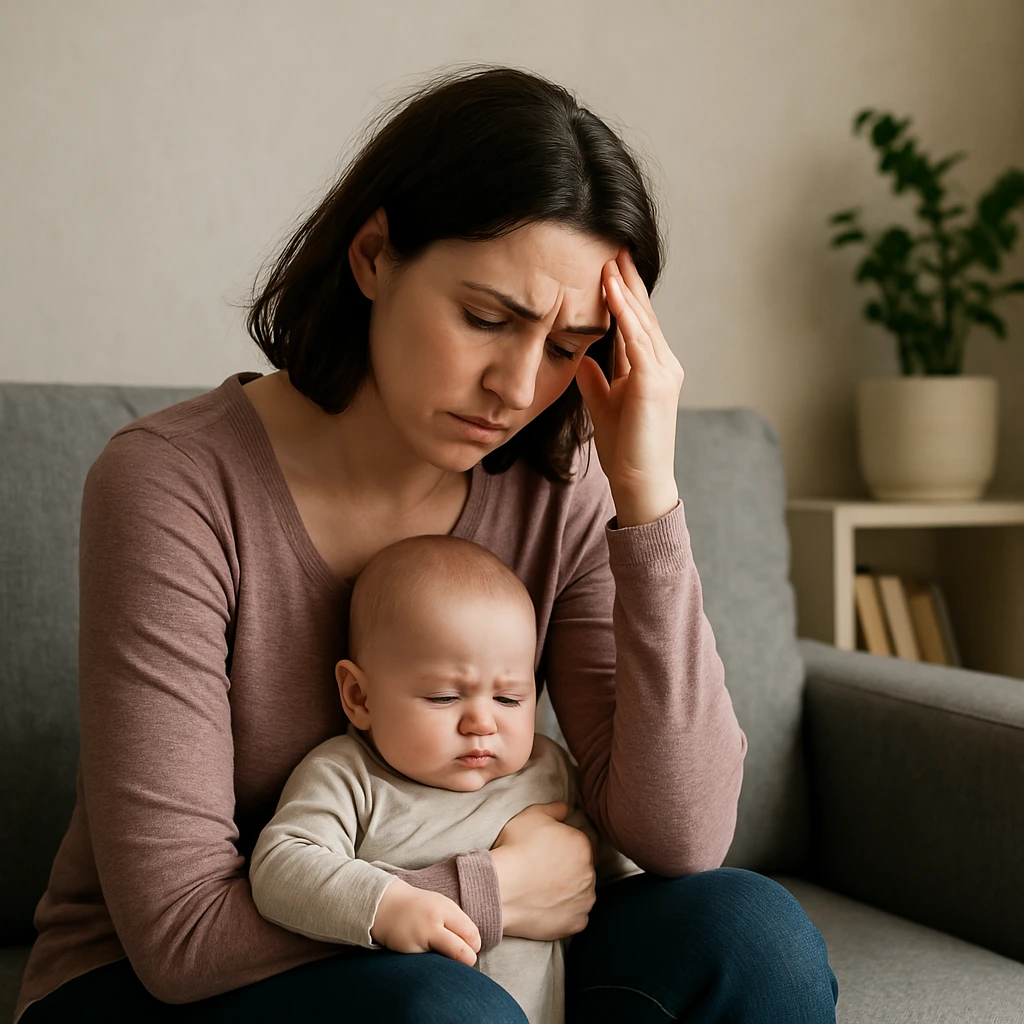
1) Seek Professional Support:
Post-adoption depression can be effectively taken care of with the help of a mental health specialist who understands adoption issues. A counselor, psychiatrist, or therapist can create a safe environment for you to fully express those difficult feelings you have without judgment. They will also provide evidence-based treatments like cognitive-behavioral therapy to help you.
They can also help you understand the disparities between normal adjustments and clinical depression and recommend medications for your treatment. You must interview several professionals before choosing whom to work with so that you will find someone who understands adoption dynamics and feels comfortable.
Remember that seeking help is not a sign of weakness but of commitment and strength to your family’s well-being.
2) Connect with Other Adoptive Parents:
Many adoptive parents going through both pre-adoption anxiety and post-adoption depression feel reluctant to share their emotions with others, but that’s not right. Sharing your experience with people of like mind can reduce feelings of isolation that come with PAD.
So, join online support groups or forums where you can speak freely about your challenges without fear of being judged or misunderstood. You will learn from the experiences of those who navigated similar emotions for those groups or forums.
These connections sometimes become valuable relationships for a long time for you and your entire family throughout your adoption journey. Just hearing that someone else has similar experiences you are having can validate your experience and help reduce guilt and shame.
3) Prioritize Self-Care Fundamentals:
One of the ways to improve depression is by addressing basic physical needs; therefore, ensure that you are getting enough sleep by exchanging your nighttime duties with your partner or getting help. Maintain good nutrition through planning your meals or accepting prepared means from others.
Try incorporating simple physical activities that can stimulate endorphins to combat depression. Have short breaks throughout your day so you can practice mindfulness, deep breathing, or just have a rest. Though all the mentioned basics may look insignificant, they are often the easiest sacrifice parents make when stressed.
Don’t take all these risks; remember that taking care of your fundamental needs isn’t selfish, necessary maintenance that makes you present for your family.
4) Adjust Expectations and Create Realistic Goals:
The fantasy of adoption is often not the same as the reality, which always causes disappointment when family life doesn’t match the expectations. I, therefore, ask that you take time to acknowledge and grieve this unrealized expectation and then set small, achievable daily goals that will provide a sense of accomplishment with no stress.
Take a record of all your small victories and progress, so you can maintain perspective during challenging times. Remember that relationships take time to develop, and if you force bonds, it can create additional pressure. Acknowledge that there will be both good and challenging days and that success is not measured by constantly being happy but by the overall connection and growth over time.
5) Address Past Trauma and Losses:
The adoption journey involves complex emotions for all the parties involved. Parents may be threatened by the pains of unresolved infertility, previous adoption experiences, and trauma from their childhood experiences. Acknowledge that adoption is built on loss; for example, the child will lose their birth family, and you will lose certain expectations.
When you succeed in working through these feelings with a therapist who’s trained in grief and trauma, you can stop these from interfering with your chances of connecting with your new family member. This internal work also allows your child to process their adoption-related pains as they grow.
Understanding how your past experiences can influence current reactions gives you clear insights and control over emotional responses, that will strengthen your parenting foundation.
Conclusion:
Post-adoption depression is a real and very serious challenge that has affected so many adoptive families, but when there is timely awareness, support, and proper treatment, you will navigate the experience fast. If you have been experiencing depression since you adopted that child, remember that seeking help is important, and it’s not a sign of weakness but of strength and a crucial step towards building a successful bond with your child.
As you address post-adoption depression openly and compassionately, you can better support all of you in the adoption journey and then create more resilient families.
*Note*
If you’re experiencing thoughts of harming yourself or others, please contact a crisis hotline immediately or go to your nearest emergency room.

